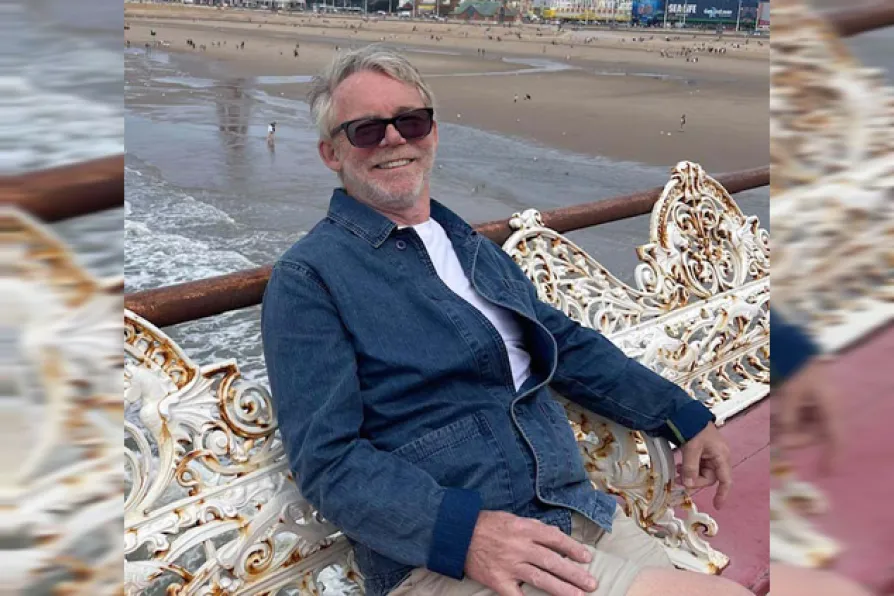John Wojcik pays tribute to a black US activist who spent six decades at the forefront of struggles for voting rights, economic justice and peace – reshaping US politics and inspiring movements worldwide
The EIS president who defended Marxist politics in the 1980s fought Thatcherite educational policies while organising Teachers for Peace rallies and ensuring Morning Star circulation in Scotland’s pit villages and factories, writes JOHN FOSTER

 David Drever, who died on August 18, was an inspiring teacher, a leader within the Scottish teachers’ trade union, the Educational Institute of Scotland (EIS), and a committed Communist.
David Drever, who died on August 18, was an inspiring teacher, a leader within the Scottish teachers’ trade union, the Educational Institute of Scotland (EIS), and a committed Communist.
DAVID DREVER, who died on August 18, was an inspiring teacher, a leader within the Scottish teachers’ trade union, the Educational Institute of Scotland (EIS), and a committed Communist.
David was born in 1952, the son of George Drever, a research scientist who fought in Spain as a member of the International Brigade and was himself a lifelong member of the Communist Party.
David grew up in Glasgow, graduated from Glasgow University in 1976 and qualified as a teacher at Jordanhill College of Education. After a few years teaching in Glasgow, he moved to Orkney, where his wider family and grandparents had lived.
Employed as head teacher of English at Kirkwall High School, he became a much respected figure in the wider community, a member of the Health Board, chair of the Orkney Archaeological Society and recently a stalwart of the Kirkwall Cathedral’s peace vigils for Palestine.
Throughout, however, Davie’s commitment remained, like that of his sisters and brother, Katy, Diana and George, to securing a socialist future and defending the historic role of the Communist Party.
He played a significant part in Scotland in ensuring that the fight for this future was sustained. He was among those younger comrades who bravely joined with veterans like Alex and Jessie Clark, Andrew Clark and Eric Park in the 1980s to defend the Marxist politics of the Morning Star and also of the Communist Party.
A prodigious reader and a great communicator and teacher, he argued against those of his contemporaries who wanted, rather like the later followers of Tony Blair in the Labour Party, to move beyond the working class and build a new non-class alliance — eventually seeking to dissolve the Communist Party itself.
A very young Kenny Coyle, a future international secretary of the Communist Party, remembers Davie in the 1980s advising him to read “Pablo Neruda and Stalin.”
Davie was among those whose energy and commitment ensured, through the 1980s, that the Morning Star remained a daily paper that circulated in the pit villages and factories of Scotland.
Jessie Clark’s daughter Kate remembers dashing, with Davie, from selling the Morning Star at the 1985 EIS conference in Oban to the annual general meeting of the People’s Press Printing Society in Glasgow — and back again — as part of this ever-continuing political work.
Davie was, however, a thinker as well as an activist. One example would be his chapter on Scottish Education in the 2005 Red Paper on Scotland edited by Vince Mills. There, he identifies the deepening disparities of educational achievement in Scotland’s schools — disparities resulting from Thatcherite policies of “parental choice” which progressively denuded schools in “poor” areas of resources.
David argued, now in the years of New Labour, for an alliance of parents, teachers and the wider labour movement to undo the continuing damage which still today impacts on young people, a persisting threat to Scotland’s future.
Davie wrote then as a national leader of the EIS, successively executive member, vice-president and, in 2008, president.
Davie was deeply read in the history of the war to defend the Spanish Republic and the contribution of the Scottish volunteers. Daniel Gray speaks of Davie’s inspiring encouragement and comprehensive knowledge when he was writing the definitive history of Scotland’s contribution.
Today, the remembrance of Davie’s energy and intelligence should inspire all those looking to a socialist future. It should do so particularly for those who link that future to the international struggle for peace, remembering that in a previous period of intensified cold war in the 1980s, Davie was among those who organised Scotland’s “Teachers for Peace,” culminating in the great rally of teachers that filled the Moir Hall in Glasgow.
Davie’s memory will be inextricably linked to the achievement of these goals: campaigning for an equity of provision for all of Scotland’s children in terms of need, promoting an understanding of the progressive traditions of Scotland’s great working-class writers and ultimately for his commitment to peace and socialism.
Our condolences go to Davie’s wife, Ann, and to his sons, Daniel and Andrew.

Maggie Bowden was a trailblazing campaigning lawyer at Birnberg and Thompsons, women’s organiser of the Communist Party, and general secretary of Liberation

Robinson successfully defended his school from closure, fought for the unification of the teaching unions, mentored future trade union leaders and transformed teaching at the Marx Memorial Library, writes JOHN FOSTER











